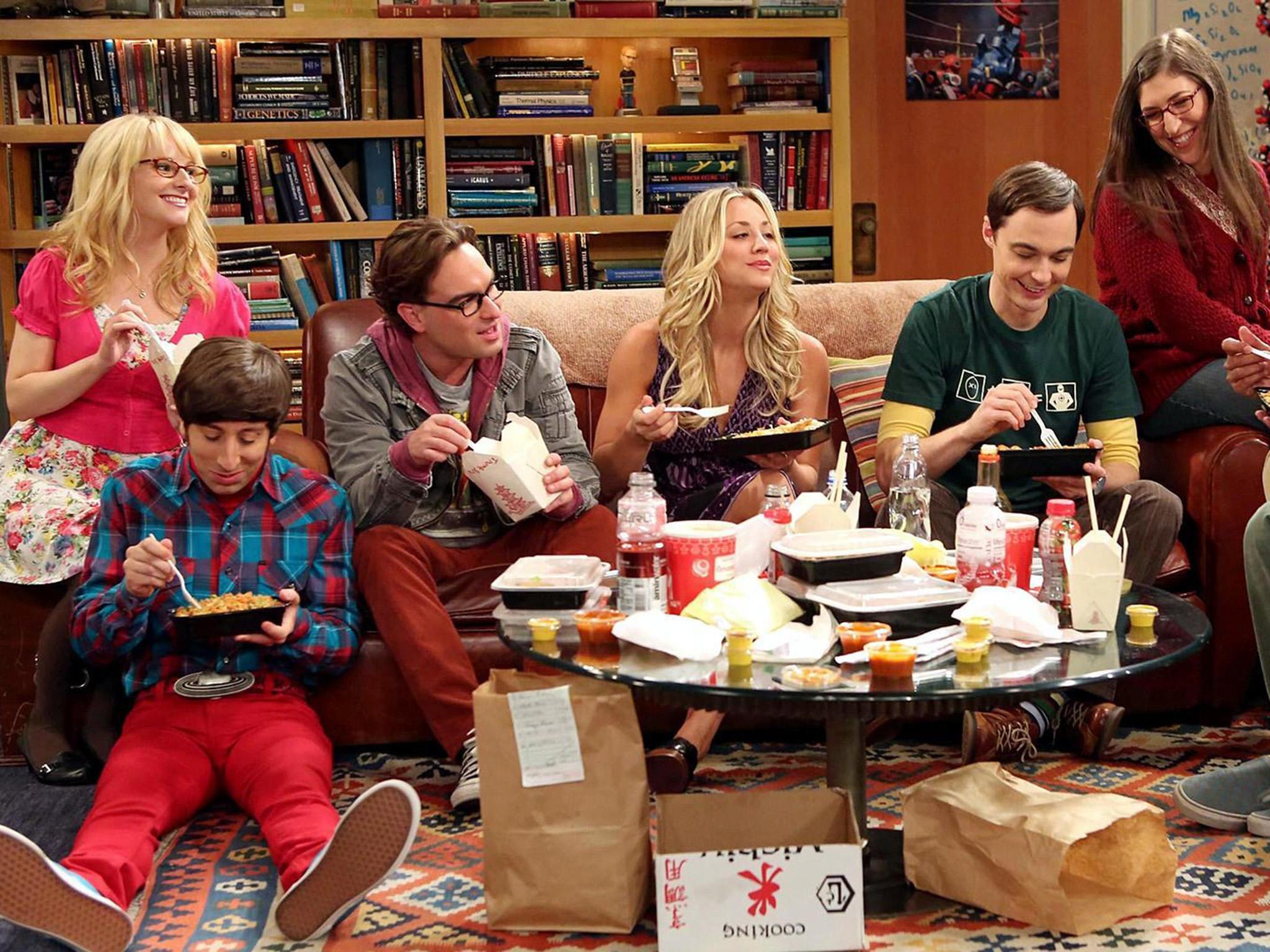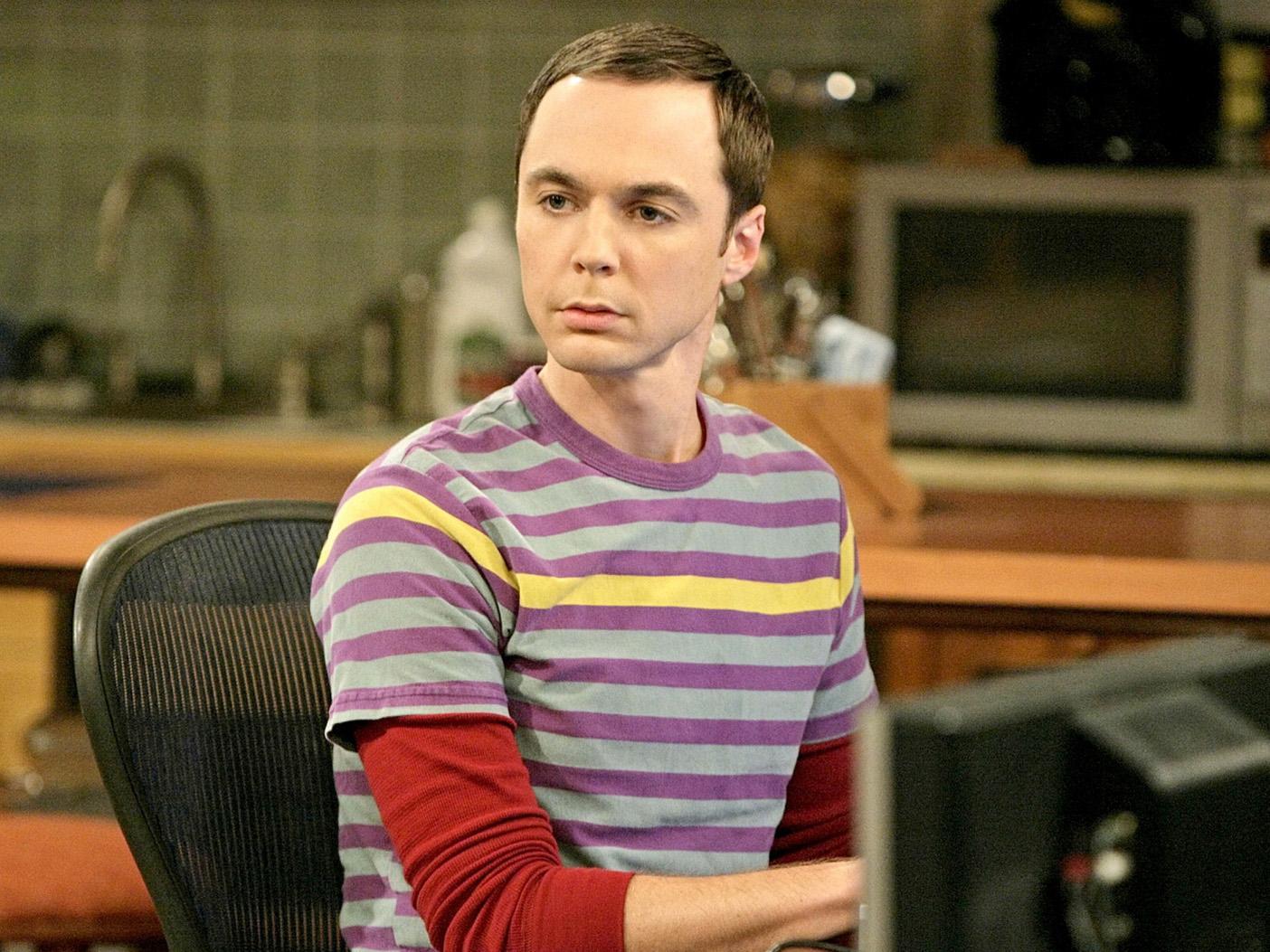The Big Bang Theory: How the show loathed by critics became the longest-running multi-cam sitcom ever
As the science geek comedy comes to an end after 12 years, Clémence Michallon explores the show's inception, divided reception and legacy


Your support helps us to tell the story
From reproductive rights to climate change to Big Tech, The Independent is on the ground when the story is developing. Whether it's investigating the financials of Elon Musk's pro-Trump PAC or producing our latest documentary, 'The A Word', which shines a light on the American women fighting for reproductive rights, we know how important it is to parse out the facts from the messaging.
At such a critical moment in US history, we need reporters on the ground. Your donation allows us to keep sending journalists to speak to both sides of the story.
The Independent is trusted by Americans across the entire political spectrum. And unlike many other quality news outlets, we choose not to lock Americans out of our reporting and analysis with paywalls. We believe quality journalism should be available to everyone, paid for by those who can afford it.
Your support makes all the difference.Sometime in the mid-2000s, Chuck Lorre and Bill Prady had an idea. Prady was regaling Lorre with stories of former colleagues, with whom he worked during his past career as a computer programmer. “They’re geniuses, as is Bill,” Lorre later recalled, “but they’re entirely maladapted to the world. You know, the guys who can figure Pi to 80 decimals but can’t do a tip in a restaurant because there’s too many variables? I was laughing my ass off because it’s just hilarious that these brilliant guys are so ill-equipped to live in the real world.”
From there, The Big Bang Theory – which ends this week after no fewer than 279 episodes – was born. The pair moved away slightly from the world of computer science, opting for physics inside, and married the idea with a previous brainwave that had initially fizzled out. “We were talking about a young woman coming into her own, living by herself for the first time in her life without her father and boyfriend,” said Lorre in 2012, “and that went nowhere. It was a dead end.”
That young woman became Kaley Cuoco’s Penny, the independent-minded Cheesecake Factory waitress and aspiring actor, who meets the rest of the gang in the show’s pilot. As for the gang, the idea was to focus on “guys who have no economic incentive” and “want to unravel the universe but can’t talk to a woman”. Enter Leonard Hofstadter (Johnny Galecki), an experimental physicist and Penny’s on-and-off love interest; Sheldon Cooper (Jim Parsons), a theoretical physicist and intellectual genius; Raj Koothrappal (Kunal Nayyar), an astrophysicist who originally has selective mutism in the presence of women; and Howard Wolowitz (Simon Helberg), an engineer who fancies himself a womanizer.
The foundational concept expressed by Lorre – telling the story of men who “want to unravel the universe but can’t talk to a woman” – reflects a conflict that makes up the core of The Big Bang Theory, and explains why the show has been both adored and despised throughout the years. The show has been accused of stereotyping “geeks” and “nerds” (two terms that had become especially trendy when the show premiered in 2007), thus alienating the very community it is based on. But others have also praised what they saw as a message of inclusion and tolerance – a position defended by the show’s co-creators, too.

“I don’t think we do [stereotype geeks],” Prady said in a 2012 interview. “The characters on the show are based to a large extent on people I knew when I was in the computer business. Initially they were, and now I think they’re based on the writers in the writers’ room, who are sort of the geekiest collection of human beings assembling daily in southern California.”
After pledging his own allegiance to seminal franchises such as Star Trek and Battlestar Galactica, Prady added: “Living in this world, one of the things I was aware of is that there’s a non-judgemental aspect. When I was a programmer, there were a lot of different flavours of people that worked with us and there was a guy who couldn’t go someplace by himself that he’d never been before.
“And as opposed to screaming and saying ’But why can’t you just go there?’, it was sort of ‘Well, no, you can’t ask him, he can’t go there because he’s never been there before.’ And it was an acceptance of people’s idiosyncrasies and a celebration of difference as opposed to an exploitation of difference.”
Perhaps the most curious thing about The Big Bang Theory, then, is the striking divide between the show’s often scathing reviews and its ratings. While it got off to a slow start, the multi-camera sitcom (a format considered risky in the mid-to-late 2000s, having fallen out of favour since the days of Friends and Seinfeld) became a ratings darling by its third season, landing the coveted Thursday 8pm slot on CBS the following year. The show’s viewership has gone up (often) and down (sometimes) over its 12 seasons, but it hasn’t dipped below 11 million since season four.

So, let’s state it clearly: The Big Bang Theory has been watched consistently by large amounts of people. It’s a fact that bears highlighting, because judging by some reviews and comment pieces, one would be forgiven for thinking no one would bother tuning in. Jezebel’s Hazel Cills has written a series of recaps throughout the show’s final season, titled Visiting The Big Bang Theory on its Deathbed, with the avowed goal of “roasting it to death one last time”. In August 2018, after CBS announced that The Big Bang Theory’s 12th season would be its last, The Guardian’s Stuart Heritage proclaimed that “our long nightmare is finally over” and that the show’s “demise should come as a relief to everybody”.
The New Statesman’s Sarah Manavis, meanwhile, called the sitcom “a plague on society”, writing: “There’s a snobby point to be made about the humour in The Big Bang Theory being that of the lowest common denominator. YouTube is riddled with videos of the show with the audience laughter edited out, which, after watching one, it becomes difficult to escape the conclusion that the critically acclaimed show is simply bad, unfunny, and, above all, full of lazy one-liners stacked on top of each other for twenty minutes.” Manavis also criticised the show’s misogynistic undertones as well as its pay gap, which prompted several of its stars to take a cut in 2017 in order to increase the salaries of Melissa Rauch (who plays microbiologist Bernadette) and Mayim Bialik (neuroscientist Amy).
“I’m always loath to guess about why other people don’t like things,” Linda Holmes, the host of NPR’s Pop Culture Happy Hour podcast, told Decider in 2018, “but in the case of The Big Bang Theory, I think there definitely are people who just find it too broad and corny, and people who don’t like its retrograde humour on matters like gay panic jokes (which is less than it used to be, but not gone). There are also just people whose tastes don’t run to CBS multicams, or to broadcast multicams in general.”
Despite the criticism, the series endured for 12 years, earning 10 Emmys out of 52 nominations. Jim Parsons notably took Outstanding Lead Actor in a Comedy Series in 2010, 2011, 2013 and 2014 for his performance as Sheldon Cooper. Mayim Bialik was nominated four times for her role as Amy Farrah Fowler, while Christine Baranski’s performance as Dr Beverly Hofstadter earned her four nominations for Outstanding Guest Actress. Over the years, the series made some efforts to build up its female characters, with Penny’s portrayal shifting from “attractive token neighbour” to “independent young woman trying to find her place in the world”. Her friendship with Bernadette and Amy also provided some nice character development for all involved.
The Big Bang Theory is now ending after a whopping 279 episodes (and after becoming the longest-running American multi-camera sitcom in history). Penny, Sheldon, Leonard, Howard and Raj are taking their last bow on Thursday, 16 May in the US, 12 years after delivering their first one-liners on the sitcom. The cast shared emotional photos of their final day of taping on social media last month, with Parsons writing that “it is hard to find the words to articulate what a profound experience this has been”. At that taping, Cuoco apparently told the audience: “It’s been an honour and a joy to perform for you for 12 years. Chuck Lorre said, ‘The Big Bang Theory just lives on in our hearts forever.’ And it was so sweet and simple and so true.”
Fans, too, appear to have stuck with The Big Bang Theory until the end. Some of them camped out the night prior to the taping to make sure they would get seats, according to Variety. One of them praised what she viewed as the show’s message of tolerance, while others said the series had provided them some much-needed escapism over the years.
Perhaps this is how The Big Bang Theory will be remembered: as a show – reviled as it was by some – that always found people to love it.
Join our commenting forum
Join thought-provoking conversations, follow other Independent readers and see their replies
Comments